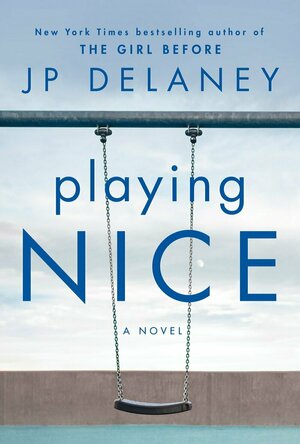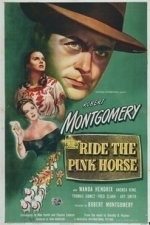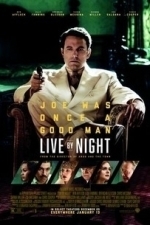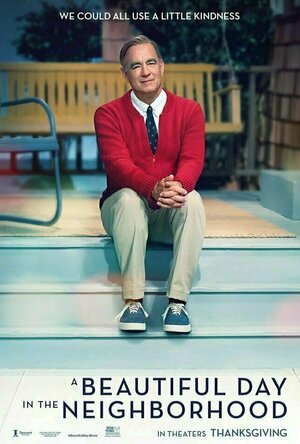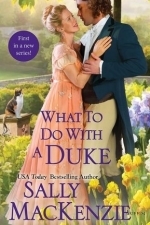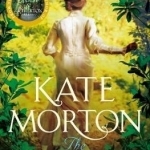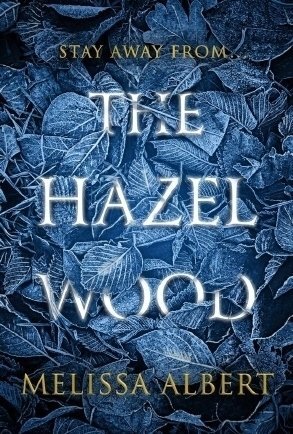Search
BookInspector (124 KP) rated Playing Nice in Books
Nov 9, 2020
The protagonists in this story were Pete and Maddie, and the story is told from their perspectives. Pete is unemployed/freelance journalist, who loves being the main carer of his son – Theo. Pete is very sweet and a true people pleaser. Maddie is working in advertising and has difficulty finding her motherly instinct when it comes to Theo. We also have Miles and Lucy, the real Theo’s parents, that are truly strange. The only character I really liked was Pete, he is just so sweet and innocent man. I did not like Maddie, I think she is an absolute hypocrite. However, I have to admit, her input in this book was intriguing. The author is an absolute expert when it comes to creating psychopaths in his novels. Every single book has one, and they are really well developed and delivered. In this book it was Miles. I really have nothing good to say about him at all, except that he is a master of deceit and nastiness.
The plot of this novel started pretty slow. It was a pity to see Pete struggling so much, but when the cruel twists came through, my blood just boiled for all the injustice happening in this book. It was like an avalanche of bad news hitting Pete and Maddie, and all that made me sad, angry and kind of annoyed. The topics discussed in this book were premature babies, mental health issues, infidelity, controlling and psychopathic partners and their behaviour, the legal system in the UK, family courts, challenging of “stay at home dad” stigma, and many more. I really liked how the author released the important information in this novel, some of it was thrown in like a bomb, but other important details were shared slowly throughout the book.
I really like the writing style, it is very well researched, truly personal and a challenging read. The book is set in London, and I really enjoy learning about different boroughs. The chapters are pretty short, and the book is so riveting and emotionally absorbing, that the pages just flew by to me. I really liked the ending of this book, it is very surprising but extremely satisfying, to say the least. 🙂
So, to conclude, I strongly recommend this novel to everyone who loves a good psychological thriller. I would love to see this book made into a film. The characters are all so different, unique and intriguing, and the plot is exceptionally well crafted, filled with so many emotions, that it is really hard to read this book without feeling something (in my case it was anger and pity).
The plot of this novel started pretty slow. It was a pity to see Pete struggling so much, but when the cruel twists came through, my blood just boiled for all the injustice happening in this book. It was like an avalanche of bad news hitting Pete and Maddie, and all that made me sad, angry and kind of annoyed. The topics discussed in this book were premature babies, mental health issues, infidelity, controlling and psychopathic partners and their behaviour, the legal system in the UK, family courts, challenging of “stay at home dad” stigma, and many more. I really liked how the author released the important information in this novel, some of it was thrown in like a bomb, but other important details were shared slowly throughout the book.
I really like the writing style, it is very well researched, truly personal and a challenging read. The book is set in London, and I really enjoy learning about different boroughs. The chapters are pretty short, and the book is so riveting and emotionally absorbing, that the pages just flew by to me. I really liked the ending of this book, it is very surprising but extremely satisfying, to say the least. 🙂
So, to conclude, I strongly recommend this novel to everyone who loves a good psychological thriller. I would love to see this book made into a film. The characters are all so different, unique and intriguing, and the plot is exceptionally well crafted, filled with so many emotions, that it is really hard to read this book without feeling something (in my case it was anger and pity).

100% Biodegradable Comic Collection 1
Book
The kind of wonderful craziness we've come to demand of the creators involved" - John Freeman, Titan...
Comic
Illeana Douglas recommended Ride the Pink Horse (1947) in Movies (curated)
Gareth von Kallenbach (980 KP) rated Live By Night (2017) in Movies
Jul 12, 2019
I’m a sucker for a Prohibition-set yarn. It’s a fascinating period in history and typically yields excellent filmmaking with gritty, no-nonsense performances, gorgeous production design and hard-boiled action. It was De Palma’s The Untouchables that hooked me. Some would call it a guilty pleasure; and sure, Morricone’s score is a little over-the-top, De Niro is more caricature than character actor as Al Capone and I’m not going to argue that Connery’s Oscar was a “sympathy vote”, but it’s got everything I mentioned above in spades and for me it’ll always be the high benchmark of the Prohibition era gangster epic. Ben Affleck’s fourth turn as director has done nothing to change my position on that.
Live by Night is an uninspired mess, from voice-over laden start to disastrously predictable end, bringing nothing new or exciting to the table. Beat for beat, its weak script moves from one sigh-inducing cliché to another, reaching clumsily for moments of high emotion that ring hollow and false. If anyone needs any further proof that Matt Damon did all the heavy lifting on the script for Good Will Hunting, they need look no further. It feels wrong to come down so hard on Affleck after his back-to-back successes as a director, but this is more akin to the first work of a blundering novice, and also certainly not what we’ve come to expect of a Dennis Lehane adaptation (see Mystic River, Shutter Island and Affleck’s own incredible directorial debut, Gone Baby Gone). His decision to wear so many hats on this project, producing, directing, sole screenwriter and lead actor, has to be the reason for this stumble. The script desperately needed another set of eyes and the part of Joe Coughlin was clearly written for someone younger and more capable of performing with the subtlety needed to play someone who has to traverse the number of moral dilemmas he’s faced with. Hopefully, this inevitable failure will be what convinces Affleck that his place should be behind the camera directing other people’s scripts and guiding other people’s performances.
Speaking of the performances, there is a massive curve in this collection of acting that swings wildly from the cartoonish to the nuanced. To start with, we have Matthew Maher as a KKK member out for his cut and Robert Glenister as an Irish mob boss, both of whom are supposed to be playing dangerous and threatening but can’t do any better than laughable and two-dimensional. Then there’s Chris Messina and Affleck himself as the hoods on the rise, their chemistry is ill-advised at best as they both seem to think they’re in a buddy comedy as opposed to a serious piece of gangster melodrama A favorite of mine, Brendan Gleeson, sadly leaves the screen within the first twenty minutes and that left me with only the inimitable Chris Cooper to look forward to. The subplot involving him and Elle Fanning, as his born-again daughter speaking out against Coughlin’s sinful ways is not without problems of its own, but at least they sell it. That should be no surprise on Cooper’s part, but now between this and The Neon Demon last summer; Fanning is firmly on my radar as one to watch. My hope was that we were going to get some tremendous battle of wills between her and Affleck’s character akin to Paul Dano and Daniel Day-Lewis’ conflict in There Will Be Blood, but that was definitely asking too much. Fanning’s role, like Gleeson’s, is unfortunately cut short just as it gets good.
I guess The Untouchables is starting to sound less like a guilty pleasure and more like a masterpiece when compared to this regrettable misfire.
Live by Night is an uninspired mess, from voice-over laden start to disastrously predictable end, bringing nothing new or exciting to the table. Beat for beat, its weak script moves from one sigh-inducing cliché to another, reaching clumsily for moments of high emotion that ring hollow and false. If anyone needs any further proof that Matt Damon did all the heavy lifting on the script for Good Will Hunting, they need look no further. It feels wrong to come down so hard on Affleck after his back-to-back successes as a director, but this is more akin to the first work of a blundering novice, and also certainly not what we’ve come to expect of a Dennis Lehane adaptation (see Mystic River, Shutter Island and Affleck’s own incredible directorial debut, Gone Baby Gone). His decision to wear so many hats on this project, producing, directing, sole screenwriter and lead actor, has to be the reason for this stumble. The script desperately needed another set of eyes and the part of Joe Coughlin was clearly written for someone younger and more capable of performing with the subtlety needed to play someone who has to traverse the number of moral dilemmas he’s faced with. Hopefully, this inevitable failure will be what convinces Affleck that his place should be behind the camera directing other people’s scripts and guiding other people’s performances.
Speaking of the performances, there is a massive curve in this collection of acting that swings wildly from the cartoonish to the nuanced. To start with, we have Matthew Maher as a KKK member out for his cut and Robert Glenister as an Irish mob boss, both of whom are supposed to be playing dangerous and threatening but can’t do any better than laughable and two-dimensional. Then there’s Chris Messina and Affleck himself as the hoods on the rise, their chemistry is ill-advised at best as they both seem to think they’re in a buddy comedy as opposed to a serious piece of gangster melodrama A favorite of mine, Brendan Gleeson, sadly leaves the screen within the first twenty minutes and that left me with only the inimitable Chris Cooper to look forward to. The subplot involving him and Elle Fanning, as his born-again daughter speaking out against Coughlin’s sinful ways is not without problems of its own, but at least they sell it. That should be no surprise on Cooper’s part, but now between this and The Neon Demon last summer; Fanning is firmly on my radar as one to watch. My hope was that we were going to get some tremendous battle of wills between her and Affleck’s character akin to Paul Dano and Daniel Day-Lewis’ conflict in There Will Be Blood, but that was definitely asking too much. Fanning’s role, like Gleeson’s, is unfortunately cut short just as it gets good.
I guess The Untouchables is starting to sound less like a guilty pleasure and more like a masterpiece when compared to this regrettable misfire.

20000+ Soup Recipes
Food & Drink and Lifestyle
App
"Soup Recipes 20000+" offers over 20000 recipes that anyone can use to create a hand crafted,...
BankofMarquis (1832 KP) rated A Beautiful Day in the Neighborhood (2019) in Movies
Dec 6, 2019
Gentle, slow-paced and full of HEART
The new "Mr. Rogers" movie, A BEAUTIFUL DAY IN THE NEIGHBORHOOD is gentle, warm, slow, kind and heartfelt - just the type of film that is antithetical to how life is bounding past all of us on a daily basis. It would be well worth your time to slow down, turn off the electronics, and take in this wonderfully loving film.
Tom Hanks, of course, stars as Mr. Rogers - the beloved TV Host of the beloved children's show MR. ROGERS NEIGHBORHOOD and he does a remarkable job of bringing this kind gentle soul to life. Hanks embodies all of what is good and right to this character, while still making him a real person. Hanks, no doubt, will be named an Oscar nominee for this performance - but it is in what category that might be a surprise to most.
For, it will be as Supporting (not Lead) Actor for this is NOT a movie ABOUT Mr. Rogers. It is a movie that Mr. Rogers plays a strong Supporting part.
This film is about the real, true-to-life relationship that Fred Rogers forged with troubled writer Lloyd Vogel (Matthew Rhys). Vogel is assigned by his boss at Esquire (Christine Lahti - who it was GREAT to see in a film) to do a quick "puff piece" on Rogers. This hard-boiled reporter is hell-bent on peeling the layers back on this man. The surface of Mr. Rogers is just "too good to be true" to this writer. What happens, of course, is that Fred Rogers peels back the layers on Vogel to help him understand his troubled relationship with his father (Chris Cooper) - and it is this relationship that is at the heart of this movie.
And heart is what is at the center of this film. This film is filled with love, understanding, warmth and HEART in abundance. Fred Rogers helps Lloyd Vogel to slow down and understand - and deal with - his feelings that are impeding his relationship with his father. And it is this heart and warmth that touched me. I was brought to the edge of tears more than once during the course of the 1 hour and 49 minute length of this film (and I am not a cryer) it was that well done - and emotional - without being cloying.
Credit Writers Micah Fitzerman-Blue and Noah Harpster (both of TV's TRANSPARENT) for adapting Tom Junod's real life Esquire article on Rogers in such a way that it is powerful, thoughtful and effective. They accomplished this by placing the events of this film, loosely, in the format of Rogers' beloved TV show and it worked well.
What also worked well was the Direction of Marielle Heller (CAN YOU EVER FORGIVE ME) like her previous film (which garnered Melissa McCarthy a well deserved Oscar nomination), Heller keeps her camera relatively still and lets her actors act - relying on tight. lingering close-ups and lingering, quiet pauses for the full effect of the emotions behind the words to land on the audience and resonate.
She would not be able to do this without a strong cast - and a strong cast she has. Besides Hanks, Matthew Rhys (TV's THE AMERICANS) is a steady calm. angry presence that anchors the film in the "no way Mr. Rogers can be that nice" mindset that almost all of us have at the beginning of the film to be slowly peeled away to reveal what is really causing the anger and cynicism emitting from his character. The always reliable Chris Cooper (Oscar winner for ADAPTATION back in 2002) brings pathos and regret as Jerry Vogel, Lloyds father. The relationship between these two is the balancing point of this film and it is balanced well. They are joined by a strong list of Supporting Actors (like Enrico Colantoni, Susan Kelechi Watson and Wendy Makkena) that bring strength and warmth to the proceedings without stealing focus on the main players. They all are SUPPORTING players and they SUPPORT the events of the film wonderfully
I strongly urge you to see this film in a "closed environment" - a movie theater, in a darkened room - without distractions (turn off your phone, close the shades if you are home) and let the warmth, gentleness, humanity and slow-pace wash over you. You'll be glad you did.
Letter Grade: A- (Did I mention that this film is paced VERY slowly)
8 stars (out of 10) and you can take that to the Bank(ofMarquis)
Tom Hanks, of course, stars as Mr. Rogers - the beloved TV Host of the beloved children's show MR. ROGERS NEIGHBORHOOD and he does a remarkable job of bringing this kind gentle soul to life. Hanks embodies all of what is good and right to this character, while still making him a real person. Hanks, no doubt, will be named an Oscar nominee for this performance - but it is in what category that might be a surprise to most.
For, it will be as Supporting (not Lead) Actor for this is NOT a movie ABOUT Mr. Rogers. It is a movie that Mr. Rogers plays a strong Supporting part.
This film is about the real, true-to-life relationship that Fred Rogers forged with troubled writer Lloyd Vogel (Matthew Rhys). Vogel is assigned by his boss at Esquire (Christine Lahti - who it was GREAT to see in a film) to do a quick "puff piece" on Rogers. This hard-boiled reporter is hell-bent on peeling the layers back on this man. The surface of Mr. Rogers is just "too good to be true" to this writer. What happens, of course, is that Fred Rogers peels back the layers on Vogel to help him understand his troubled relationship with his father (Chris Cooper) - and it is this relationship that is at the heart of this movie.
And heart is what is at the center of this film. This film is filled with love, understanding, warmth and HEART in abundance. Fred Rogers helps Lloyd Vogel to slow down and understand - and deal with - his feelings that are impeding his relationship with his father. And it is this heart and warmth that touched me. I was brought to the edge of tears more than once during the course of the 1 hour and 49 minute length of this film (and I am not a cryer) it was that well done - and emotional - without being cloying.
Credit Writers Micah Fitzerman-Blue and Noah Harpster (both of TV's TRANSPARENT) for adapting Tom Junod's real life Esquire article on Rogers in such a way that it is powerful, thoughtful and effective. They accomplished this by placing the events of this film, loosely, in the format of Rogers' beloved TV show and it worked well.
What also worked well was the Direction of Marielle Heller (CAN YOU EVER FORGIVE ME) like her previous film (which garnered Melissa McCarthy a well deserved Oscar nomination), Heller keeps her camera relatively still and lets her actors act - relying on tight. lingering close-ups and lingering, quiet pauses for the full effect of the emotions behind the words to land on the audience and resonate.
She would not be able to do this without a strong cast - and a strong cast she has. Besides Hanks, Matthew Rhys (TV's THE AMERICANS) is a steady calm. angry presence that anchors the film in the "no way Mr. Rogers can be that nice" mindset that almost all of us have at the beginning of the film to be slowly peeled away to reveal what is really causing the anger and cynicism emitting from his character. The always reliable Chris Cooper (Oscar winner for ADAPTATION back in 2002) brings pathos and regret as Jerry Vogel, Lloyds father. The relationship between these two is the balancing point of this film and it is balanced well. They are joined by a strong list of Supporting Actors (like Enrico Colantoni, Susan Kelechi Watson and Wendy Makkena) that bring strength and warmth to the proceedings without stealing focus on the main players. They all are SUPPORTING players and they SUPPORT the events of the film wonderfully
I strongly urge you to see this film in a "closed environment" - a movie theater, in a darkened room - without distractions (turn off your phone, close the shades if you are home) and let the warmth, gentleness, humanity and slow-pace wash over you. You'll be glad you did.
Letter Grade: A- (Did I mention that this film is paced VERY slowly)
8 stars (out of 10) and you can take that to the Bank(ofMarquis)
Jamie (131 KP) rated What To Do With A Duke in Books
Jul 22, 2017
Mild humor (1 more)
Some good discussion about marriage and women
Unstable plot (2 more)
Frustrating characters
Vulgar male lead
A misguided curse
When it comes to historical romance, I look for one of two things: one, a compelling love story with some scenes that make me blush and fan myself; or two, a light and fluffy clean romance, sometimes with a touch of humor. What I demand from all historical romances is for both the romance and the setting to be believable. I’ve started to wonder if my standards are too high. When I went into this book, with the cute cover and hints at a curse, I figured this one might fall on the fluffy side of the spectrum (the cat on the cover may have influenced this assumption). I was sadly mistaken.
The characters seem so non-committal, not just with each other, but with upholding any of the values they claim to have. Catherine was constantly complaining about how she needed peace and solitude to write, but in the first half of the novel whenever she had it she didn’t do it. She blames family for her difficulties with not being able to be the next great novelist, but the problem was really with the fact that she was not all that committed to doing it. Just like she apparently was not all that committed to being a spinster, despite preaching about it constantly. I found Catherine’s character to be frustrating at every turn and had a hard time rooting for her.
Unfortunately, the other half of this love story was hardly any better. Marcus is dreamy for all of a few minutes, until he started talking about his manhood… Which he proceeded to do all the time. Every time the narration would switch to him, inevitably a thought would end with some note about what his cock wants. I suppose Marcus’ raw desire was supposed to be tantalizing, but I honestly just found it vulgar. It didn’t help that everything about Marcus and Catherine’s romance was a lust at first sight sort of scenario. I didn’t feel any real chemistry between them, even by the end when they are apparently in love with each other I still wasn’t feeling it. Literally everything always boiled back down to sex. The rest of the story and dialogue was not even all that funny, clever, or witty, it was just two stubborn people wanting to get in each other’s pants the entire book while being really over dramatic about, well, everything.
Then there is the curse plot line, which I could suspend my belief and go with it for a while, but even that felt like it was poorly thought out. Marcus has to control his desires and avoid marriage because he’s fearful of accidentally impregnating a woman, thus ending his life. Though somehow, he has no problem with brothel women and the risk of impregnating any of them? Because bastard children can’t be heirs? Sure, at that time period they certainly had a harder go of it, but it wasn’t unheard of. And even if that was the case, didn’t the curse start with an illegitimate child born to a woman jilted by her lover? The number of plot holes was staggering and it wouldn’t have been such a big deal if it wasn’t the central focus of the story.
I also didn’t buy the mildly magical ending with the cat. No I don’t hate the cat, on the contrary the cat was perhaps the best character in the entire book. It just seemed too convenient, too hastily put together. I was also bothered by the fact that, in order to I guess create some tension, Marcus had absolutely no interest in finding out the truth about the curse. That alone basically undid all of the effort, all of the worry, all of the focus this character had on this family curse that has weighed so heavily on him for his entire life. It made absolutely no sense for his character. I don’t even want to go into how his character contradicts himself again once the mystery is solved. I hated Marcus.
I almost put this book down after the first couple of chapters, but things picked up around the half way mark. After one scene that actually made me chuckle with the eye brow waggling old ladies, I had hope that maybe the story would redeem itself with the added bit of comedy. I was disappointed that things started to go downhill again once the book attempted to flesh out the curse and develop the romance between Catherine and Marcus. Which, while I’m on that subject – I absolutely hated how that turned out. Catherine spends the entire novel preaching about never wanting to get trapped in a marriage and to never have children, then finds herself trapped. It wasn’t romantic, it was just frustrating.
On a slightly random note, I also noticed at one point an expletive is used that I was fairly certain did not exist in the context that it was used during that time period. After looking it up my assumption was correct – while the word had existed in the more vulgar sense that it is commonly used, as a curse or slang word it didn’t come about until the 1920’s. I know it’s being overly nit picky, but things like that really ruin the immersion in the time period for me.
The characters seem so non-committal, not just with each other, but with upholding any of the values they claim to have. Catherine was constantly complaining about how she needed peace and solitude to write, but in the first half of the novel whenever she had it she didn’t do it. She blames family for her difficulties with not being able to be the next great novelist, but the problem was really with the fact that she was not all that committed to doing it. Just like she apparently was not all that committed to being a spinster, despite preaching about it constantly. I found Catherine’s character to be frustrating at every turn and had a hard time rooting for her.
Unfortunately, the other half of this love story was hardly any better. Marcus is dreamy for all of a few minutes, until he started talking about his manhood… Which he proceeded to do all the time. Every time the narration would switch to him, inevitably a thought would end with some note about what his cock wants. I suppose Marcus’ raw desire was supposed to be tantalizing, but I honestly just found it vulgar. It didn’t help that everything about Marcus and Catherine’s romance was a lust at first sight sort of scenario. I didn’t feel any real chemistry between them, even by the end when they are apparently in love with each other I still wasn’t feeling it. Literally everything always boiled back down to sex. The rest of the story and dialogue was not even all that funny, clever, or witty, it was just two stubborn people wanting to get in each other’s pants the entire book while being really over dramatic about, well, everything.
Then there is the curse plot line, which I could suspend my belief and go with it for a while, but even that felt like it was poorly thought out. Marcus has to control his desires and avoid marriage because he’s fearful of accidentally impregnating a woman, thus ending his life. Though somehow, he has no problem with brothel women and the risk of impregnating any of them? Because bastard children can’t be heirs? Sure, at that time period they certainly had a harder go of it, but it wasn’t unheard of. And even if that was the case, didn’t the curse start with an illegitimate child born to a woman jilted by her lover? The number of plot holes was staggering and it wouldn’t have been such a big deal if it wasn’t the central focus of the story.
I also didn’t buy the mildly magical ending with the cat. No I don’t hate the cat, on the contrary the cat was perhaps the best character in the entire book. It just seemed too convenient, too hastily put together. I was also bothered by the fact that, in order to I guess create some tension, Marcus had absolutely no interest in finding out the truth about the curse. That alone basically undid all of the effort, all of the worry, all of the focus this character had on this family curse that has weighed so heavily on him for his entire life. It made absolutely no sense for his character. I don’t even want to go into how his character contradicts himself again once the mystery is solved. I hated Marcus.
I almost put this book down after the first couple of chapters, but things picked up around the half way mark. After one scene that actually made me chuckle with the eye brow waggling old ladies, I had hope that maybe the story would redeem itself with the added bit of comedy. I was disappointed that things started to go downhill again once the book attempted to flesh out the curse and develop the romance between Catherine and Marcus. Which, while I’m on that subject – I absolutely hated how that turned out. Catherine spends the entire novel preaching about never wanting to get trapped in a marriage and to never have children, then finds herself trapped. It wasn’t romantic, it was just frustrating.
On a slightly random note, I also noticed at one point an expletive is used that I was fairly certain did not exist in the context that it was used during that time period. After looking it up my assumption was correct – while the word had existed in the more vulgar sense that it is commonly used, as a curse or slang word it didn’t come about until the 1920’s. I know it’s being overly nit picky, but things like that really ruin the immersion in the time period for me.
Zuky the BookBum (15 KP) rated The Lake House in Books
Mar 15, 2018
<b>All spoilers hidden.</b>
The Lake House sounded really interesting to me because of its weave of three stories that make the one mystifying disappearance of young baby Theo. Our first of the three stories comes from the perspective of young Alice during the earlier years of the 1900s, the second comes from current day, now serial author, Alice in the early 2000s and the last from troubled police detective Sadie. But wait there are more stories given to us in this book? But I thought it claimed there were only three? Well no there are at least 4 as we also get a very in depth tale from Alices mother's perspective too.
To begin with I really enjoyed this book and I looked forward to my travels everyday to give me a bit of down time with the opportunity for a good read too however when we got to about half way through I started to get a bit bored. I definitely feel that the story could have been cut down by quite a lot, it seemed in places that Morton was just rambling away, trying to add substance to the story that it could have easily done without. By the time the mystery was being solved I was actually quite fed up of all of the characters and just wanted to know what had happened to Theo so I could get on with my life. I wasnt even surprised by the time we got to the resolution of the mystery as Id already guessed it, so it was a little anticlimactic.
Lets talk about the characters for a minute shall we?
OK, so Alice. I understand that she lost her brother, <spoiler> and believed for most of her life that she was the reason he had gone missing,</spoiler> but I dont understand why that made her so cold and harsh? <spoiler> She made the choice to keep her secret to herself so it was her own fault she felt so guilty all the time, but there was no need for her to turn that bitterness onto everyone else.</spoiler> She changed so much from the young, spritely young girl she once was, to a boring old woman who ate bloody boiled eggs <i>everyday.</i>
Sadie was such a cliche. A police detective with such a strong connection with a previous case that she was asked to take some leave? A police detective with some underlying issue that makes it difficult for her to focus on her tasks without stepping back into the past each time? A police detective who just couldnt let go of the case in front of her and would do everything she possibly could to solve something that had been unsolvable for 70 years? <i>Well my god, Ive never seen such a character in a book before!</i> <spoiler> Can someone explain to me how this woman can come along and solve a 70 year old cold case just like that? And whats the fucking betting her grandad is the missing baby Theo! What an amazing and unpredictable end to the novel!</spoiler>
Eleanor was the only character in the book I couldnt decide if I liked or not. She was such a lovely young girl but had to turn into the strict Mother for her young children while Daddy was away which almost made her dislikable. But then we find out all that shes going through so much to keep her family afloat that we can forgive her for her stony personality. <i>But then,</i> we find out shes doing something morally questionable, <spoiler> her stupid affair,</spoiler> behind her family's back purely for her own pleasure with almost no regard for how it might make her children and husband feel. Now I have to say I didnt feel any sympathy for Eleanor once her actions were made known to the reader, and as soon as they were I knew what the end of the novel was going to be.
Can we also quickly talk about Ben Munro please he was such a hippy idiot.
<img src="https://media.giphy.com/media/CK3smvJ4EJlug/giphy.gif"; width="442" height="249" alt="hippie"/>
<spoiler> There was nothing appealing about his character in the slightest and it makes me wonder why Eleanor fell for him so hard. There was nothing spectacular about his choice to live as a gypsy. He was a deluded, drippy loser who was terrified commitment, even to a fucking kettle. Why couldnt he have taken his son? Why did he choose to live his life in his caravan rather than looking after his son that he so apparently adored and treasured? Selfish, selfish, selfish!</spoiler>
Apart from all my annoyances with the characters and the lack of excitement I felt by the end of the novel, it wasnt the worst thing Ive ever read and I even thought I enjoyed it. But as its been over a week since Ive finished this and Ive had time to think about it, the more Ive realised how bloody annoyed it made me.
The Lake House sounded really interesting to me because of its weave of three stories that make the one mystifying disappearance of young baby Theo. Our first of the three stories comes from the perspective of young Alice during the earlier years of the 1900s, the second comes from current day, now serial author, Alice in the early 2000s and the last from troubled police detective Sadie. But wait there are more stories given to us in this book? But I thought it claimed there were only three? Well no there are at least 4 as we also get a very in depth tale from Alices mother's perspective too.
To begin with I really enjoyed this book and I looked forward to my travels everyday to give me a bit of down time with the opportunity for a good read too however when we got to about half way through I started to get a bit bored. I definitely feel that the story could have been cut down by quite a lot, it seemed in places that Morton was just rambling away, trying to add substance to the story that it could have easily done without. By the time the mystery was being solved I was actually quite fed up of all of the characters and just wanted to know what had happened to Theo so I could get on with my life. I wasnt even surprised by the time we got to the resolution of the mystery as Id already guessed it, so it was a little anticlimactic.
Lets talk about the characters for a minute shall we?
OK, so Alice. I understand that she lost her brother, <spoiler> and believed for most of her life that she was the reason he had gone missing,</spoiler> but I dont understand why that made her so cold and harsh? <spoiler> She made the choice to keep her secret to herself so it was her own fault she felt so guilty all the time, but there was no need for her to turn that bitterness onto everyone else.</spoiler> She changed so much from the young, spritely young girl she once was, to a boring old woman who ate bloody boiled eggs <i>everyday.</i>
Sadie was such a cliche. A police detective with such a strong connection with a previous case that she was asked to take some leave? A police detective with some underlying issue that makes it difficult for her to focus on her tasks without stepping back into the past each time? A police detective who just couldnt let go of the case in front of her and would do everything she possibly could to solve something that had been unsolvable for 70 years? <i>Well my god, Ive never seen such a character in a book before!</i> <spoiler> Can someone explain to me how this woman can come along and solve a 70 year old cold case just like that? And whats the fucking betting her grandad is the missing baby Theo! What an amazing and unpredictable end to the novel!</spoiler>
Eleanor was the only character in the book I couldnt decide if I liked or not. She was such a lovely young girl but had to turn into the strict Mother for her young children while Daddy was away which almost made her dislikable. But then we find out all that shes going through so much to keep her family afloat that we can forgive her for her stony personality. <i>But then,</i> we find out shes doing something morally questionable, <spoiler> her stupid affair,</spoiler> behind her family's back purely for her own pleasure with almost no regard for how it might make her children and husband feel. Now I have to say I didnt feel any sympathy for Eleanor once her actions were made known to the reader, and as soon as they were I knew what the end of the novel was going to be.
Can we also quickly talk about Ben Munro please he was such a hippy idiot.
<img src="https://media.giphy.com/media/CK3smvJ4EJlug/giphy.gif"; width="442" height="249" alt="hippie"/>
<spoiler> There was nothing appealing about his character in the slightest and it makes me wonder why Eleanor fell for him so hard. There was nothing spectacular about his choice to live as a gypsy. He was a deluded, drippy loser who was terrified commitment, even to a fucking kettle. Why couldnt he have taken his son? Why did he choose to live his life in his caravan rather than looking after his son that he so apparently adored and treasured? Selfish, selfish, selfish!</spoiler>
Apart from all my annoyances with the characters and the lack of excitement I felt by the end of the novel, it wasnt the worst thing Ive ever read and I even thought I enjoyed it. But as its been over a week since Ive finished this and Ive had time to think about it, the more Ive realised how bloody annoyed it made me.
Lorey L. (3 KP) rated The Hazel Wood in Books
Mar 7, 2018
Loved! Would recommend for fans of chilling fairytales.
Immediately after finishing Albert's dark tale, I took to Goodread's knowing other's had been left with the same tingly sensation of bloody good wrongness. Unfortunately, I found for many this was not the case. The story was dark, creepy and had all the good bad things that make you listen too closely at bumps and stare too intensely at shadows.
First, the writing is completely breathtaking. The imagery in Albert's style is superb. It made me want to wrap up in a blanket with a hot cup of tea and a roaring fire and wish for her words to never end.
With that being said, I did find that at times it could get a little thick and hard to sludge through, but for me, that was infrequent enough to not give me too much of a bother. I felt there was a lot of backstory that could have been told in a more fluid manner, but nevertheless, it was (mostly) needed backstory.
The world Albert created in Hinterland... I need more. If more/most of the story had taken place in the Hinterland, I feel it would have been closer to 5 stars. But, being mostly set in New York it did still leave the storyline curious and mysterious enough to lure you in if given half a chance.
Secondly, the characters are... horrible and good and missing things. Personally, once I figured out who Alice was, I understood why she was written the way she was (more on that in a bit). Unfortunately, I felt most characters, outside of Alice, were mostly one-dimensional. More fully fleshed out and I may have found myself falling a little in love Finch, desperately wanting to know Ella, or even more curious about the mysterious Althea. They just needed a little... more.
Thirdly, the artwork. Oh good Lord in Heaven, I am in love with the cover art of this book. Dark and shiny and filled with images that beg to be understood. Jim Tierney should be praised almost as much as the author for lending the right mindset for this dark story.
Further, my favorite parts of this book were by far the snippets of Althea's Hinterland Stories. Even if you don't like the book- you will LOVE these stories. They are the perfect amounts of creepy, mysterious, weird, and wonderful.
Finally, a more in-depth look. I'd like to begin with Alice. I feel it's not that her character is "misunderstood" but that she is almost too understood. Mean, angry, violent. With little too no explanation for her outbursts... Except for the simple fact that many readers seem not to care about (and understandably, to a degree. She's not the most likable person). She was spun that way. With an icy core she is unable to control, a darkness she fears.
**"I'd let myself drift too close to the dark continent at the core of me, a lawless place I tried never to visit."**
*SPOILER* Alice Three Times is basically the villain of a dark fairytale. She is made up of rage and ice and blackness. The fact Ella helps her control it even a little is amazing. Understanding this allowed me to view Alice in a different way than I had other heroines. She was, in the end, simply trying to become an ex-Story. To try and be the normal girl she never had the chance of being. *END SPOILER* This made her annoying, unexplained, angry outbursts easier to understand and accept,
for me.
Finch, the only character we know to be a person of color (note: many characters within the book, as previously mentioned, are far from being fully-fleshed out. For most, ethnicity isn't even mentioned), is nerdy and verging-on-fierce, but kind-of, off-putting in some instances. For example, because he is such a "fan" there are several times he ignores the fact that he is making Alice uncomfortable, and especially *SPOILER* when he basically sells her to the Hinterland Stories for entry to their land*END SPOILER*
*SPOILER*I also wanted to quickly talk about the confrontation with the police that leads Finch to try and explain why he's mad, which in turn leads to Alice acting very Story-ish. I felt for Finch in a big way here. I was angry with her stupid, selfish reaction as well. I applauded him for standing up for her and got annoyed that she acted so irrationally and privileged. But, I realized after reading the section through again, Alice is not a person. She is a Story. And although she was raised a human, her "ice core" sometimes ruled her actions more than her mind- which seemed to agree with Finch, even though her actions, words, and anger said otherwise:
**"...You think rich matters in this situation? You think a cop looks at me and sees <i>rich?</i> You're pretending you don't get it, but you do."
<b>I did get it, I did. And the shame of it boiled into something darker.</b> Before my brain could catch up, I jerked the wheel and turned the car off the road, sending us rattling toward the trees."** *END SPOILER*
This isn't a book for everyone. I enjoy reading both the positive and negative reviews, as they shed new light on different aspects of the story! I loved it and I can't wait for Melissa Albert's book of Hinterland Stories- and maybe even a second Hazel Wood! If you do choose to give this book a try, go in with an open mind... and maybe a light on.
First, the writing is completely breathtaking. The imagery in Albert's style is superb. It made me want to wrap up in a blanket with a hot cup of tea and a roaring fire and wish for her words to never end.
With that being said, I did find that at times it could get a little thick and hard to sludge through, but for me, that was infrequent enough to not give me too much of a bother. I felt there was a lot of backstory that could have been told in a more fluid manner, but nevertheless, it was (mostly) needed backstory.
The world Albert created in Hinterland... I need more. If more/most of the story had taken place in the Hinterland, I feel it would have been closer to 5 stars. But, being mostly set in New York it did still leave the storyline curious and mysterious enough to lure you in if given half a chance.
Secondly, the characters are... horrible and good and missing things. Personally, once I figured out who Alice was, I understood why she was written the way she was (more on that in a bit). Unfortunately, I felt most characters, outside of Alice, were mostly one-dimensional. More fully fleshed out and I may have found myself falling a little in love Finch, desperately wanting to know Ella, or even more curious about the mysterious Althea. They just needed a little... more.
Thirdly, the artwork. Oh good Lord in Heaven, I am in love with the cover art of this book. Dark and shiny and filled with images that beg to be understood. Jim Tierney should be praised almost as much as the author for lending the right mindset for this dark story.
Further, my favorite parts of this book were by far the snippets of Althea's Hinterland Stories. Even if you don't like the book- you will LOVE these stories. They are the perfect amounts of creepy, mysterious, weird, and wonderful.
Finally, a more in-depth look. I'd like to begin with Alice. I feel it's not that her character is "misunderstood" but that she is almost too understood. Mean, angry, violent. With little too no explanation for her outbursts... Except for the simple fact that many readers seem not to care about (and understandably, to a degree. She's not the most likable person). She was spun that way. With an icy core she is unable to control, a darkness she fears.
**"I'd let myself drift too close to the dark continent at the core of me, a lawless place I tried never to visit."**
*SPOILER* Alice Three Times is basically the villain of a dark fairytale. She is made up of rage and ice and blackness. The fact Ella helps her control it even a little is amazing. Understanding this allowed me to view Alice in a different way than I had other heroines. She was, in the end, simply trying to become an ex-Story. To try and be the normal girl she never had the chance of being. *END SPOILER* This made her annoying, unexplained, angry outbursts easier to understand and accept,
for me.
Finch, the only character we know to be a person of color (note: many characters within the book, as previously mentioned, are far from being fully-fleshed out. For most, ethnicity isn't even mentioned), is nerdy and verging-on-fierce, but kind-of, off-putting in some instances. For example, because he is such a "fan" there are several times he ignores the fact that he is making Alice uncomfortable, and especially *SPOILER* when he basically sells her to the Hinterland Stories for entry to their land*END SPOILER*
*SPOILER*I also wanted to quickly talk about the confrontation with the police that leads Finch to try and explain why he's mad, which in turn leads to Alice acting very Story-ish. I felt for Finch in a big way here. I was angry with her stupid, selfish reaction as well. I applauded him for standing up for her and got annoyed that she acted so irrationally and privileged. But, I realized after reading the section through again, Alice is not a person. She is a Story. And although she was raised a human, her "ice core" sometimes ruled her actions more than her mind- which seemed to agree with Finch, even though her actions, words, and anger said otherwise:
**"...You think rich matters in this situation? You think a cop looks at me and sees <i>rich?</i> You're pretending you don't get it, but you do."
<b>I did get it, I did. And the shame of it boiled into something darker.</b> Before my brain could catch up, I jerked the wheel and turned the car off the road, sending us rattling toward the trees."** *END SPOILER*
This isn't a book for everyone. I enjoy reading both the positive and negative reviews, as they shed new light on different aspects of the story! I loved it and I can't wait for Melissa Albert's book of Hinterland Stories- and maybe even a second Hazel Wood! If you do choose to give this book a try, go in with an open mind... and maybe a light on.
